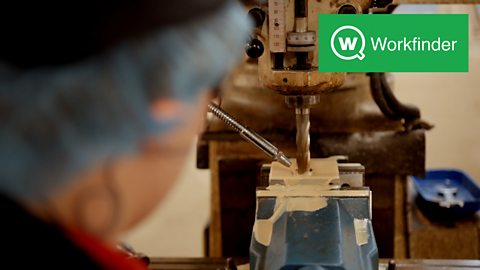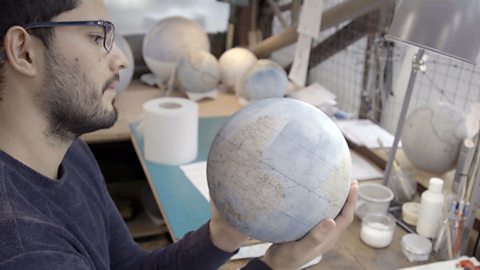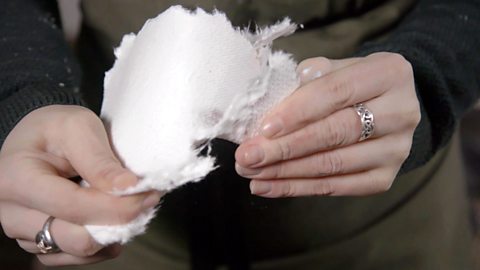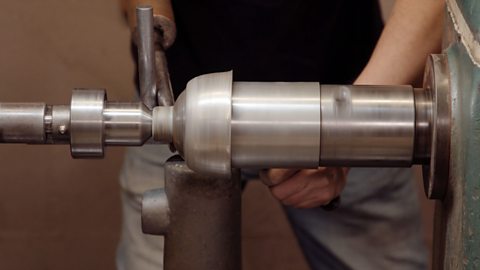Meet Holly, 24, from Glasgow, to find out more about life as an innovation manager at Nestlé in London. Part of our Bitesize world of work series.
Holly:
I'm Holly, I'm 24 years old, and I'm an innovation manager.
My job starts with understanding our consumers' needs and what they love to deliver new and improved products that excite them.
My responsibility is coffee, which involves coming up with new recipes, new flavours, new packaging, and even new ways to drink coffee.
I spend a lot of time working in big project teams to deliver these new concepts, working with the factory teams and how we are going to make these a reality and lots of time spent understanding the latest trends in the world of food and drink. I get inspiration from social media, from coffee experts, by listening to our consumers, and by drinking lots and lots of coffee.
In primary school, I always loved Science and Maths, as well as arts and being creative. I carried those interests right through to secondary school, but then it became more difficult – Maths and Science were often timetabled at exactly the same time as Art.
I was always asking: "can I do half this subject half the other subject?" So I got to do Maths and Physics and Science right up to Advanced Higher level in Scotland, as well as Art and Graphics and Photography.
When it came to applying for university, I was able to find my perfect degree in Product Design Engineering – half engineering at the University of Glasgow and half design at the Glasgow School of Art.
Doing a combined degree was amazing because it taught me how to make real products and make them work, like materials, how to cost them, but also to generate new and exciting ideas that solve the needs of consumers.
When I finished university, the reason I applied for this graduate scheme is because it seemed like a brilliant opportunity to see the whole end-to-end process of product development.
I didn't want to limit myself to a career that would use only my technical skills or my creative skills. I was determined to find a career path that would allow me to combine both. And here I am today, and I absolutely love what I do.
I didn't want to limit myself to a career that would only use my technical or creative skills. I was determined to find a path that would allow me to use both.
- Holly struggled to choose her subject options at school because she was equally interested in Art and Science
- She stuck with what she loved and managed to find a Product Design Engineering course that split her time equally between the University of Glasgow and the Glasgow School of Art
- In Holly's job, her time is still split between art and science. She uses her creativity to understand trends and come up with new concepts and ideas, and her science knowledge to test new products.

Holly's role as an innovation manager is similar to that of a design and development engineer. Design engineers improve product performance and efficiency while researching and developing new manufacturing ideas and systems.
What to expect if you want to be a design and development engineer
- Design and development engineer average salary: £24,000 to £50,000 per year
- Design and development engineer typical working hours: 38 to 40 hour per week
What qualifications do you need to be a design and development engineer?
You could get into this role via a university course or a degree apprenticeship. You'll usually need one or two A-levels, or equivalent, for a foundation degree or higher national diploma, and two to three A-levels, or equivalent, for a degree. For a degree apprenticeship, you'll usually need four or five GCSEs at grades 9 to 4 (A* to C) and A-levels, or equivalent. Alternatives to A-levels include a T-level in Design and Development for Engineering and Manufacturing (available from 2022, England-only). T-levels are equivalent to three A-levels. You can also apply directly if you have relevant experience. Check with your course provider which alternative qualifications they accept.
Sources: LMI for All, National Careers Service, GOV.UK
This information is a guide and is constantly changing. Please check the National Careers Service website for the latest information and all the qualifications needed and the GOV.UK website for more on T-levels.
Find out more on the Prospects website about the role of a design engineer.
For careers advice in all parts of the UK visit: National Careers Service (England), nidirect (Northern Ireland), My World of Work (Scotland) and Careers Wales (Wales).


Work experience in your area
Find work experience placements with Workfinder.
Tips and advice
Help with interviews, writing a CV and all things work experience related.


Eddy: globemaker. video
Eddy is learning how to make beautiful hand-made globes.

Zoe: paper maker. video
They are an apprentice in a traditional paper mill.

Varis: silversmith. video
He's an apprentice silver spinner.
